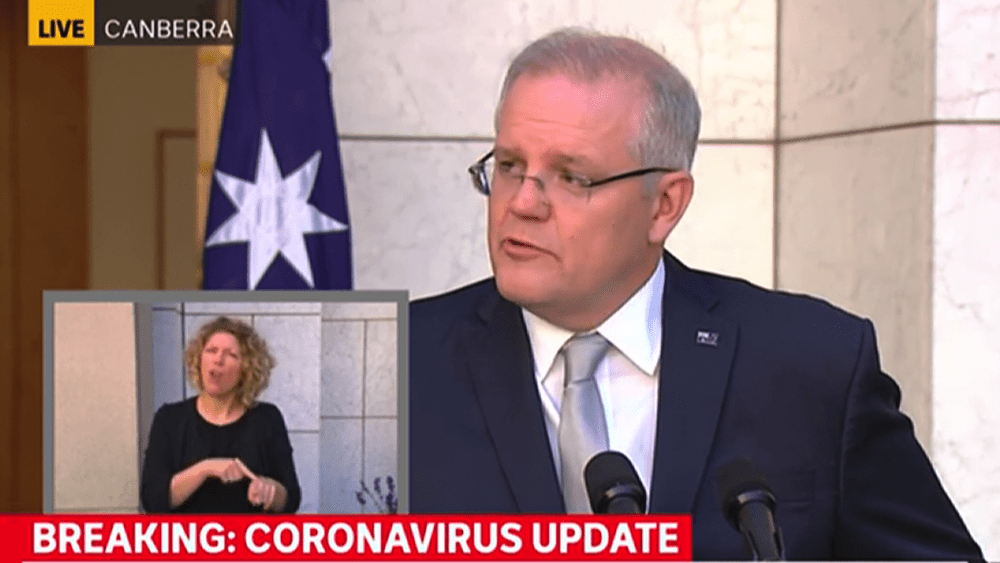BREAKING: Ban on non-essential gatherings of more than 100 people
“If we slow the spread, we do save lives.”
Prime Minister Scott Morrison announced today that, effective immediately, “non-essential” indoor gatherings of 100 people or more are banned in Australia to combat the spread of COVID-19.
According to Morrison, essential gatherings include airports, public transport, medical, health, disability and aged care facilities, among others.
“If we slow the spread, we do save lives.” – Scott Morrison
Everything else outside the “essential” category is “non-essential”, such as church meetings.
“The decisions … made [are] to put a ban on non-essential gatherings of persons 100 or greater in indoor areas,” announced Morrison at a press conference this morning. “Outdoor areas, it is 500 and indoor areas it is 100.
“That is effective now, as of today and those arrangements, in terms of the legal enforcement of those measures, are being put in place by the states and territories.”
Already, churches around Australia have been rushing to respond to the previous ban upon indoor gatherings of 500 people. This announcement will effect a major proportion of church gatherings across Australia.
Morrison said gatherings of less than 100 people – such as Bible study groups, home churches or smaller church services – should apply the principles of “social distancing”.
“If we slow the spread, we do save lives,” said Morrison, calling on Australians to work together in a “true spirit of national unity.”
Morrison said the government’s health advice was schools should remain open at this stage.
“This is a once in 100 years type of event. We haven’t seen such a challenge since the end of the world war.”
During the press conference, Morrison also said that the government’s health advice was schools should remain open at this stage. He gave the example of Singapore’s containment of coronavirus with its approach to leaving schools open.
Morrison clarified visiting guidelines for aged care facilities, notably who can visit and how often. “The facilities must also implement the following measures for restricting visits and visitors to reduce the risk of transmission to residents,” he said.
“Limiting visits to a short duration [and] limiting visits to a maximum of two visitors at one time per day.
“These may be immediate social supports, family members, close friends or professional service or advocacy workers.”
Children under the age of 16 should visit aged care facilities “only by exception.”
Focusing upon residents in aged care facilities who are facing “end of life”, Morrison acknowledged how “distressing” each situation is and said “the aged care facilities will be asked to put in place sensible arrangements to facilitate those types of visits on a compassionate basis.”
Email This Story
Why not send this to a friend?



